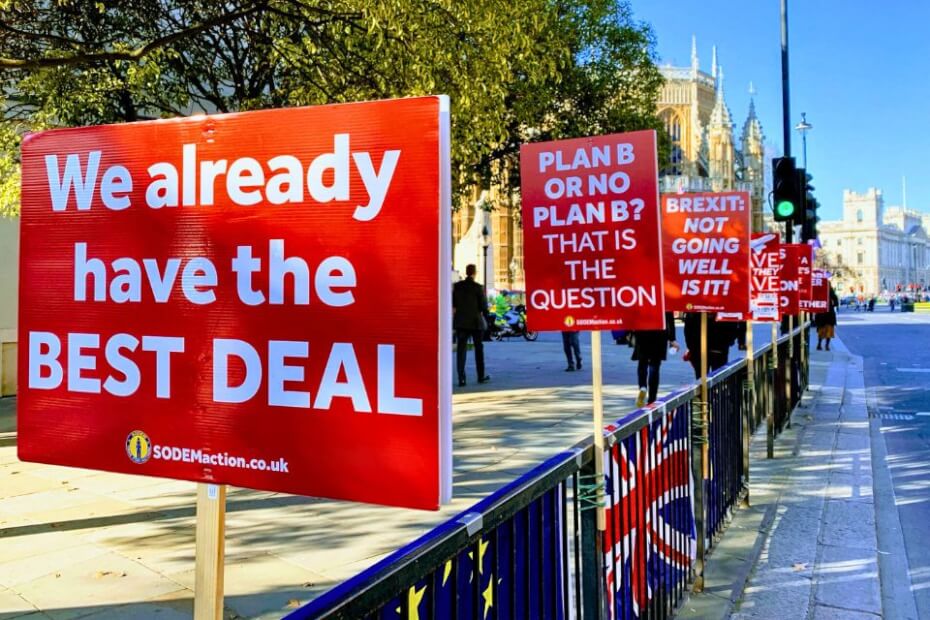
The United Kingdom (UK) and the European Union (EU) have been working to improve their relations and hopefully agree on a Youth Mobility Scheme.
The Mayor of London, Sadiq Khan, is seizing this strategic moment to continue to push for a UK-EU Youth Mobility Scheme.
A youth mobility agreement would allow young people to live and work more freely across borders.
Khan has been vocal in that this could address critical labor gaps in London’s economy.
The UK already has youth mobility agreements with 13 countries across the globe.
Khan’s push for youth mobility
Khan urges the government to consider a Youth Mobility Scheme similar to the UK’s agreements with Canada and Australia.
This proposal would let young adults, typically under 30, work or study in the UK or EU for up to two years.
This would be a good opportunity for young people to gain practical work experience without committing to long-term immigration.
Explaining his view to Italy’s La Repubblica, Mayor Khan revealed that many London business sectors still face huge vacancies.
His proposed Youth Mobility Scheme addresses these labor shortages in the hospitality, healthcare, and tech sectors.
Brexit ended free movement between the UK and the EU, leaving many businesses short-staffed and reducing services or closures.
It cut off London’s primary source of young, skilled workers, which Khan highlighted as a pressing need to revitalize the labor force.
“So we’re going to take advantage of the opportunity of the renegotiation [with the EU] to try and see if we can get the Youth Mobility Scheme,” he told La Repubblica.
He believes that even if every unemployed Londoner were trained, certain sectors would still struggle to find enough workers.
Khan’s short-term goal is to ensure that the UK has the best deal possible and then possibly initiate talks on the single market and customs union.
“The dream for me is as close as we can get to the European Union in a whole host of things,” he said.
London voted 60 percent to remain or leave the EU in the 2016 referendum, but the rest of the country chose to leave.
The London Mayor has been at the forefront of efforts to rebuild ties with Britain’s European neighbors after the damage caused by Brexit.
A strategic moment in UK-EU relations

UK Prime Minister Keir Starmer’s administration is currently engaged in discussions with the EU.
This marked a significant opportunity to redefine UK and EU relations after Brexit.
The EU has been open to discussing mobility for young workers, as it aligns with their own calls for closer collaboration.
Number 10 emphasized the need for balanced negotiations with Europe, as some issues require sensitive handling.
Starmer has voiced caution on policies that could increase migration or reinstate free movement, a key decision in the Brexit process.
Still, he emphasized his intent to build a “stronger, cooperative relationship” with Europe.
However, his office said immediate action on mobility is unlikely, preferring to prioritize gradual changes in the UK-EU relationship.
Khan argued that an immigration solution is necessary to preserve London’s economy.
While non-EU immigration has increased since Brexit, the lack of EU labor mobility still burdens many industries.
The London Mayor also believes a Youth Mobility Scheme could bolster London’s competitiveness.
This would make it easier for young, motivated Europeans to live and work in the city.
A youth mobility deal could also benefit European youth seeking international experience and job opportunities.
Public opinion, especially in London, remains divided.
For those who voted to remain in the EU, Khan’s vision of a renewed, open workforce resonates strongly.
Yet, for those concerned about immigration levels, even a targeted mobility scheme could raise worries over long-term policy shifts.
Reports from The Standard indicate that some industry leaders are hopeful the government will consider these alternatives seriously.
Youth mobility and future UK-EU relations

The Youth Mobility Scheme proposals mirror the complexities of post-Brexit UK-EU relations.
Khan’s plan aims for a limited, reciprocal exchange targeting young workers.
However, the UK Government is cautious about any measure that might appear to reintroduce freedom of movement.
The UK has rejected the EU’s youth mobility proposal, opting for a county-by-country arrangement instead of a blanket EU-wide deal.
Still, the EU hopes the proposal can be adjusted to benefit both parties.
However, there has been mounting pressure in Britain to agree to a youth mobility deal for many reasons.
These include filling jobs in critical sectors and bringing back cultural diversity in universities and colleges.
A Youth Mobility Scheme could also open doors for young Britons to explore different cultures and careers across Europe.
Rebuilding closer ties with the EU while upholding Brexit principles remains a challenging balancing act.youth mobility proposals so far. Still, it remains hopeful that the proposal can be adjusted to benefit both parties.
However, there has been mounting pressure in Britain to agree to a youth mobility deal for many reasons.
These include filling jobs in critical sectors and bringing back cultural diversity in universities and colleges.
A youth mobility scheme could also open doors for young Britons to explore different cultures and careers across Europe.
Rebuilding closer ties with the EU while upholding Brexit principles remains a challenging balancing act.

